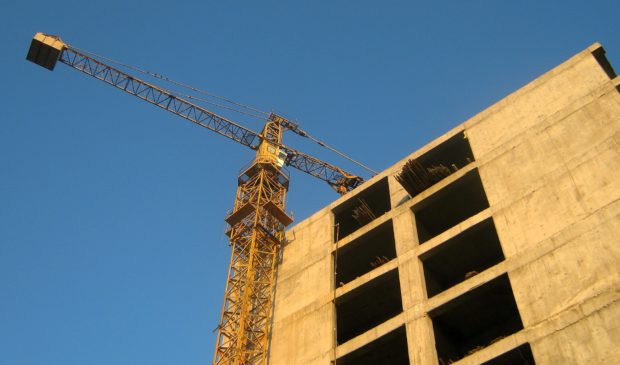Human Rights Commission talks density bonuses
Tuesday, July 11, 2017 by
Sommer Brugal Housing affordability in Austin as it relates to CodeNEXT was the center of attention at the Human Rights Commission meeting on Monday, June 26. On behalf of Austin Habitat for Humanity, Greg Anderson, the organization’s director of operations, presented a new form of density bonus incentives as a way to combat the city’s housing challenges.
The density bonuses Anderson discussed in his presentation related specifically to multifamily housing options. Anderson said the current code incentivizes developers to build one or two high-end houses on the land they acquire. It’s the result of out-of-date codes that limit developers to how much they can build on one piece of land.
“One of the biggest reasons we aren’t providing as many houses as we need is that we have so many land use regulations that don’t help us achieve a compact, connected city,” said Anderson.
Anderson argued that creating incentives for developers to voluntarily participate in such projects could result in a change, making room for affordable, income restricted homes. Anderson said offering such incentives is a great opportunity to calibrate zoning regulations for the entire map of Austin. Instead of restricting developers to what they can and cannot build in certain zones, the incentives would not only allow, but encourage developers to build multifamily homes in desirable neighborhoods in Austin in return for a portion of those units being sold at an affordable cost to low-income families.
“What that means is reduce the setbacks, allow them to (build) taller, allow them to build more homes (on the property), allow them to have less parking,” said Anderson. “Do those things in exchange for the community benefit of affordability.”
Commissioner Marshall Bennett questioned the processes Anderson presented.
“I tend to think that the calculus is fatally flawed,” said Bennett. “I don’t have any confidence that these density bonuses are going to work the way a lot of (people) think they’re going to.” Bennett also asked whether the density bonus programs have been successful elsewhere.
Anderson cited the university neighborhood overlay program, known as UNO, in his response to Bennett.
“If you go look at UNO, they’ve produced 964 affordable bedrooms at 60 percent less (cost),” said Anderson. “That’s almost 1,000 bedrooms at an affordable rate.”
A number of other commissioners echoed Bennett’s skepticism. Commissioner Isabel Casas was curious to know what Anderson would say to Austin residents who have lived here for the past 10 years and are skeptical of CodeNEXT. She said while these residents see more units being built, their rent hasn’t gone down.
Anderson said a reason for that disparity is because the city’s population growth is still out-producing the number of units being built. Even so, he said, there is no code that will result in drastic rent decreases.
“One of the ways we’re looking at it as an organization,” Anderson said, “is trying to get more opportunities for the folks that we know want to be (in Austin), incentivizing and creating ways for the market to produce more affordable housing on its own.”
Anderson said he hopes to see changes within Austin’s housing codes that capture community benefits. Overall, he encouraged commission members to push for more aggressive building and housing regulations and incentives in CodeNEXT.
Curious about how we got here? Check out the Austin Monitor’s CodeNEXT Timeline.
Photo by Sonia Sevilla (Own work) [CC0], via Wikimedia Commons.
The Austin Monitor’s work is made possible by donations from the community. Though our reporting covers donors from time to time, we are careful to keep business and editorial efforts separate while maintaining transparency. A complete list of donors is available here, and our code of ethics is explained here.
You're a community leader
And we’re honored you look to us for serious, in-depth news. You know a strong community needs local and dedicated watchdog reporting. We’re here for you and that won’t change. Now will you take the powerful next step and support our nonprofit news organization?








